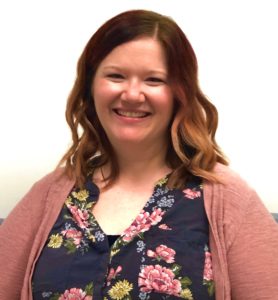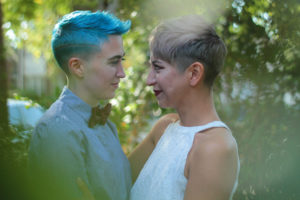Nichole Venable
Nichole Venable, LPC
Clients I work with: Children ages 0-12 and their families, teens individually and/or with families, individual adults, caregiving teams including biological, step, adoptive, or foster caregiving teams, LGBTQ youth and adults, clients seeking EMDR therapy, and military individuals and families.
Issues I work with: Anxiety, depression, trauma, childhood adverse experiences, child and adolescent emotional and behavioral concerns, family conflict, sibling issues, parenting/co-parenting, attachment and connection, social skills, bullying, emotional and physical dysregulation, mind-body connection, self-worth, shame, grief & loss, death and dying, identity struggles, LGBTQIA issues, addictive behaviors, self-harm, life transitions, life stressors, and personal growth.
As a systemic and attachment-based therapist, I believe we are all looking for connection, belonging, and acceptance. In this current era of Covid-19, this need has become more apparent and many of us are struggling to find meaning in this tumultuous time.
We are meaning-making creatures. Our brains are constantly trying to organize and process our experiences. When those experiences are overwhelming, painful, or adverse, our brains can make meaning in ways that can cause us distress. The beauty of being human is that we also have the ability to purposefully change and heal difficult experiences so we can find peace and self-worth at any age. That’s where I come in. I help people harness their resilience, take back their power, and find their way back to feeling whole.
Wherever we are in the lifespan – infant, child, teen, or adult – we all need to make sense of what is happening to us, inside us, and in our relationships. Our experiences shape us in profound ways – who we know ourselves to be, how we manage emotions, how we respond to stressors, and how we connect with others.
Emotions can be scary and messy things for children, teens, and adults. I specialize in helping all my clients see their emotions as messengers. We work as a team to understand what those emotions are trying to tell you, how to tolerate them, and how to utilize their wisdom for increased connection, healing, and growth.
I feel extremely fortunate to have had the opportunity to receive extensive training in infant and early childhood mental health and attachment. I work with parents to understand newborn cues, behavior, and temperament, and to learn what is unique and special about their baby. I support you to know your baby’s preferences, strengths, and vulnerabilities, and how to decipher the uniquely individual ways they communicate delight, discomfort, and need for connection. Together, we deepen the bond between you, helping you feel attuned and confident in your ability to respond to your baby’s needs.
This training also allows me to work with children and their families where there may have been additional stress, transition, or overwhelm during early years which may be impacting the present. I can support families to process experiences held in the body, make sense of behaviors and emotions, and build a sense of safety and self-esteem.
I have found a lot of joy in working with children and their families. Children express themselves best through play and I enjoy encouraging that communication in the therapy sessions. I work closely with caregivers to help build that bridge of communication by encouraging and guiding therapeutic play in session between caregiver and child. In learning the language of play, we can discover the hurts or confusion that our children are carry around without the language to express it effectively. I can then guide play with the goal of improving connection, self-esteem, and emotion regulation. I aim to help families create the skills they need to navigate the stressors of life, long after therapy has ended.
I also enjoy working with adolescents and their families. The teen years are an exciting stage of life when we explore our identity and explore our growing independence, while still but our brains aren’t quite there yet. Parents are grappling with the balancing act of want to give their children more independence but also wanting to guide and protect. I see my role as supporting families to create a shared language for understanding struggles, navigating these new needs, and staying connected throughout this time.
In my work with adult individuals I help clients regain a sense of their identity, worth, needs, and resilience. Whatever the issue you struggle with, knowing who you are, how you got here, and what you need is the foundation of building a life worth living. I can help you understand your life experiences and help you create the change you desire.
I am a LGBTQIA and non-monogamy-affirming, kink-aware therapist that believes that sexual diversity is just as much a part of our identity as any other definition we take on. I also believe in creating a safe space to talk about sexual diversity without unnecessarily making it a focus of treatment.
I have over 15 years of experience working with children, teens, adults and families. I utilize evidence-based models such as Attachment and Bio-Behavioral Catch-up (ABC for ages 0-2), Trauma-Focused Cognitive Behavioral Therapy (TF-CBT for ages 3-19), Eye Movement Desensitization and Reprocessing (EMDR for ages 3 through adulthood), and Eco Systemic Structural Family Therapy (families with children ages 0-18).
I have experience working with a variety of populations in multiple settings. I’ve spent time volunteering with NGO’s in India, worked with Native American populations on and off reservations, with military families on and off bases, with refugees new to this country, with children in therapeutic foster care, with dual diagnosis clients struggling with both addiction and severe mental health, with Hospice patients that have a prognosis of 6 months left and their families, with potential adoptive parents and children in foster care, with parents working with CPS to reunify with their children, with families that have a parent in prison or getting out of prison, teens and adults with addiction, LGBTQIA population, transgendered individuals that want to or are going through transition, non-traditional families including but not limited to polyamorous families, physical, emotional, sexual, environmental, racial trauma, sex-positive, and kink-allied.


















